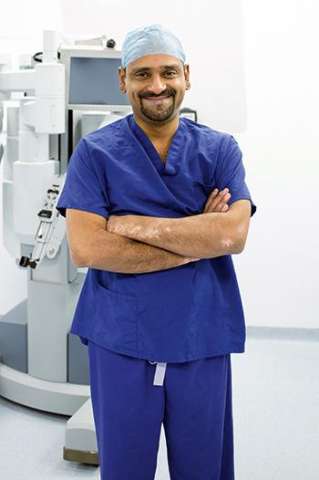We put this question to Mr Shahnawaz Rasheed, a leading Consultant Colorectal Surgeon based at The Royal Marsden Hospital.

“The way I classify outstanding doctors is in the following 6 categories:
- Relationships
-How do I interact with my colleagues and other specialists, both junior and senior?
-What am I like? How do I communicate? Am I good at building rapport with patients?
- Attitude
-Do you look after patients like they are members of your own family?
-Attitude is the most difficult category to train
- Skills
-How do you assess patients and how well do you perform all your clinical duties?
- Knowledge
-It’s great to be a fantastic communicator but you need to have the knowledge to underpin your communication. You need to understand what you’re talking about.
-You have to maintain the knowledge of the area that you’re working in, this is absolutely essential.
- Meticulousness
-Attention to detail is essential.
-It’s not good enough to make one correct diagnosis every ten patients we see. With every single patient the level of the attention to detail has to be there throughout the whole time you manage a patient.
- Empathy
-Kindness is essential. We do this job to serve others. The connection between your clinical practice and how you deal with others around you is essential.
————————-
You can reflect on where you are in each category at any given point in time and see how you can improve. These 6 areas provide a good template to help you focus on your development both personally and professionally”
About Mr Shahnawaz Rasheed:
 Mr Shahnawaz Rasheed is a Consultant Surgeon at The Royal Marsden and a Senior Lecturer at Imperial College London.
Mr Shahnawaz Rasheed is a Consultant Surgeon at The Royal Marsden and a Senior Lecturer at Imperial College London.
He was awarded his medical degree by St Bartholomew’s and The London Hospitals’ Medical School in 1997. Subsequently, he was admitted as a member and then a Fellow of the Royal College of Surgeons of England. He was awarded a PhD by Imperial College London for research on colorectal cancer undertaken at St Mark’s Hospital, London in conjunction with the Weatherall Institute, Oxford and the Mount Vernon Cancer Centre, Hertfordshire.
Mr Rasheed provides a diagnostic service for colorectal cancer which includes an endoscopic service. He specialises in primary, locally advanced and recurrent colorectal cancer performed open and using minimal invasive techniques including laparoscopy and is one of the only surgeons in the UK who is using the Da Vinci Xi surgical robot to perform colorectal cancer surgery. He has published widely and delivered many lectures in the UK and internationally on various aspects of colorectal cancer.
In addition, he has an interest in global health and oversees development projects in low- and middle-income countries as well as leading a global disaster response team and running courses on disaster response medicine. He is the global Medical Director of the NGO Humanity First and is also a Permanent Council member for the G4 Alliance which advocates for surgery, anaesthesia, obstetrics and trauma in low and middle countries. In addition, he is the lead for the Forum on International Crisis Management at the Institute for Global Health Innovation income, Imperial College London and has an interest in improving delivery of care following international disasters.
About Generation Leader
Generation Leader provides the most innovative, relevant and impactful online healthcare management and leadership courses for healthcare professionals.
Our courses are aligned to the leadership curricula of the UK’s Royal Colleges and made specifically for healthcare professionals. Our courses have been created by medical doctors who know how the healthcare sector works from years of experience. All courses are applicable and relatable and help learners to succeed in gaining essential skills to excel in day-to-day work activities, such as: communicating with colleagues and patients, complex problem solving, conducting difficult conversations, innovation, knowing how to lead and motivate teams.
Join Our Community & Start Learning Today
*This blog provides general information and discussions about health and related subjects. The information is not intended and should not be considered, or used as a substitute for, medical advice, diagnosis or treatment.